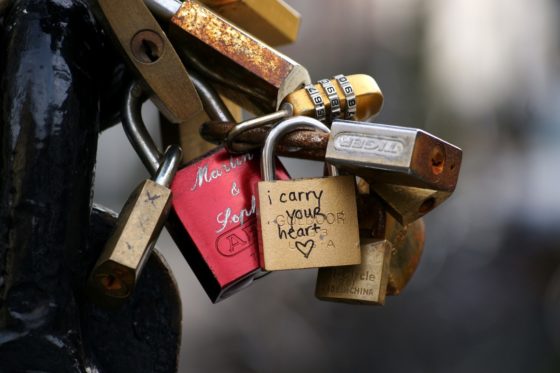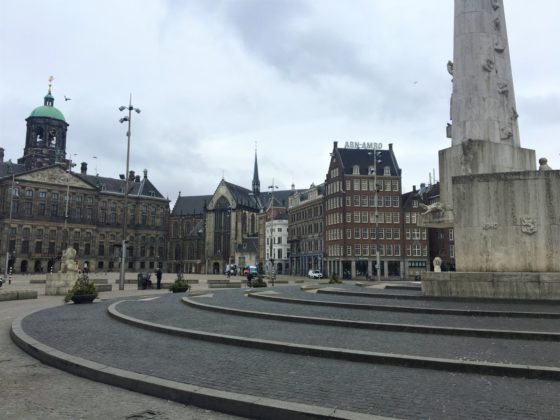The tourists have returned to Amsterdam and I’m back in an open relationship with my city.


During lockdown, Deborah Nicholls-Lee has enjoyed the peace and quiet in Amsterdam’s city centre. Now as the city opens up, she braces herself for change.
I think I saw tourists the other day. A young couple in summer prints dragging large wheelie cases, pausing on the brow of a canal bridge to squint into a mobile phone.
I’ve been surveying quiet, slumbering Amsterdam for tourists ever since the lockdown began to lift; eyeing suspiciously anyone cycling clumsily on matching bikes or looking at their surroundings with too much curiosity.
I was once a tourist here myself, surprised to discover that this city known for its lewd entertainment district was above all picturesque and romantic. Twenty years on, I am now a resident here, proud that I live in a place that people flock to visit, but enjoying a few weeks of not having to share its charms – one of the morally ambiguous upsides to a pandemic which has taken over 6000 lives in the Netherlands and devastated many more livelihoods.
The pendulum has swung and many of those businesses which made the city centre so unliveable are now unable to beckon punters to their sex clubs or sell tickets for their tours, bringing calm and [economic] chaos in equal measure. I live in the touristy centre, and though the city has lost some of its buzz, on the whole I’ve enjoyed the respite. On my morning runs, I’ve crossed a Dam Square populated only by pigeons, and slipped into the deserted Red Light District, noticing the birdsong and the wisteria for the first time.
I’ve panted through the Kalverstraat, one of the city’s most popular shopping streets. It’s normally no place for runners, who tend to cluster in the parks on the perimeters of town. As I give an elderly lady space to pass me on her bike, she calls out to me. ‘How lovely, to be able run through the town like that!’ she smiles, clearly also appreciating the freedom to enjoy Amsterdam’s centre without the hindrance of crowds.

The huge reduction in traffic has also given my children, who were born here, the freedom to explore their home town in safety. My ten-year-old has been allowed to walk to her friends’ houses without an adult, and my seven-year-old has been riding her bike to the park and to school.
Lockdown has also revealed Amsterdam’s cracks, of course. Those unable to obey the ‘stay at home’ guidance were largely those without one, and in the early stages of lockdown, the city’s many homeless were cruelly conspicuous.
As the tourists trickle back in, and the perpetual low-flying planes and rumble of suitcases over paving stones will soon drown out the conversations between neighbours below my window, I feel apprehensive.
The old regime is fast approaching and thousands of Amsterdammers are eager to forestall it. Over 27,000 residents have signed a petition to reduce the negative impact of mass tourism on their quality of life, calling for a ban on new hotels and a limit of 12 million overnight stays per year for tourists – around 70% of the 2018 figures. The municipality has already committed to a ban on holiday rentals from the 1st July in the worst affected neighbourhoods.
Whatever the outcome, having this UNESCO World Heritage Site all to ourselves again is unlikely – and the ruination that would imply, undesirable. So I’m savouring what little time is left. ‘It’s been lovely to get our town back,’ I comment to a neighbour. He looks at me quizzically, unsure that a foreigner is qualified to claim any ownership of Amsterdam. But he then checks himself. He is a country boy from the platteland, he admits, and also an outsider of sorts.
We both thought of Amsterdam as our city, as do the tourists, photographing it from every angle, like paparazzi around a movie star. But living here, you’re forced into an open relationship with the city. This alluring settlement built on wooden stakes and mud belongs only to itself, and loving it brings both jealousy and joy.
Thank you for donating to DutchNews.nl.
We could not provide the Dutch News service, and keep it free of charge, without the generous support of our readers. Your donations allow us to report on issues you tell us matter, and provide you with a summary of the most important Dutch news each day.
Make a donation